Relevance
Best Medical Oncologists in delhi (10 doctors)
Book appointment for a trusted Medical Oncologists in Delhi. Check doctor fees, available slots & locations. Apollo 24|7 features some of the top Medical Oncologists in Delhi who have experience in treating conditions such as Immunotherapy, Hormonal therapy, Chemotherapy and more. You can book online consultations & physical doctor appointments via Apollo 24|7. Compare Medical Oncologists fees, experience and more, find a specialist doctor near you. Apollo hospitals has a renowned Medical Oncology department in Delhi.

Dr. P K Das
Medical Oncologist
25 Years • MBBS, MD, DM
10 KM • Delhi
Apollo Hospitals Indraprastha, Delhi
(25+ Patients)

Dr. Praveen Kumar Garg
Surgical Oncologist
26 Years • MBBS, M.S.(Gen.Surg.), M.Ch.(OncoSurg.)
10 KM • Delhi
Apollo Hospitals Indraprastha, Delhi
(100+ Patients)
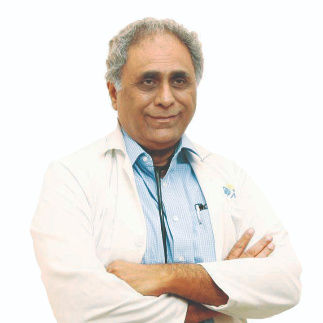
Dr. Harsh Dua
Medical Oncologist
35 Years • MBBS, MD
10 KM • Delhi
Apollo Hospitals Indraprastha, Delhi

Dr. Dipanjan Panda
Medical Oncologist
10 Years • MBBS, MD, DM
10 KM • Delhi
Apollo Hospitals Indraprastha, Delhi
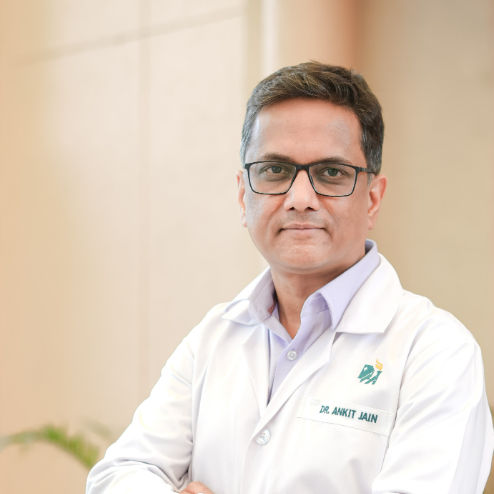
Dr Ankit Jain
Medical Oncologist
20 Years • MBBS, (MAMC Delhi), MRCP Oncology (London), MRCP Medicine (London), MSC Oncology(UK) CCT(UK)
10 KM • Delhi
Apollo Hospitals Indraprastha, Delhi
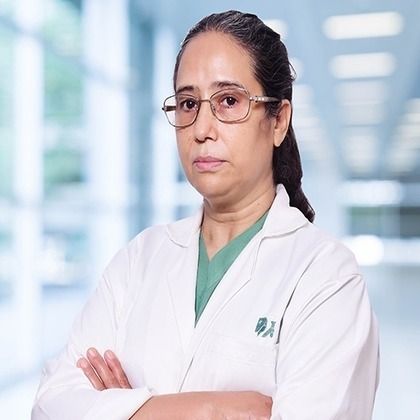
Dr. Ruquaya Ahmad Mir
Surgical Oncologist
20 Years • MBBS, DNB
10 KM • Delhi
Apollo Hospitals Indraprastha, Delhi
(25+ Patients)

Dr. Gopal Kumar
Head, Neck and Thyroid Cancer Surgeon
15 Years • MBBS, MS , FARHNS ( Seoul, South Korea ), FGOLF ( MSKCC, New York )
10 KM • Delhi
Apollo Hospitals Indraprastha, Delhi
(25+ Patients)
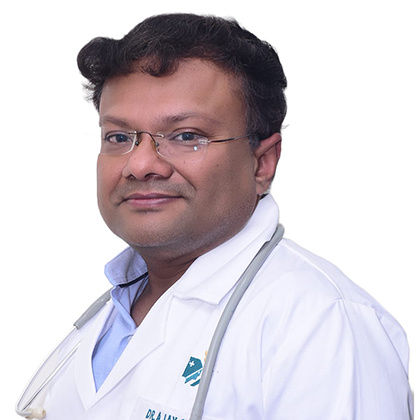
Dr. Ajay Gupta
Medical Oncologist
15 Years • MBBS (MAMC), MD (Medicine) , DM (AIIMS-Medical Oncology), FRACP (Australia), CCST (UK)
10 KM • Delhi
Apollo Hospitals Indraprastha, Delhi
(50+ Patients)
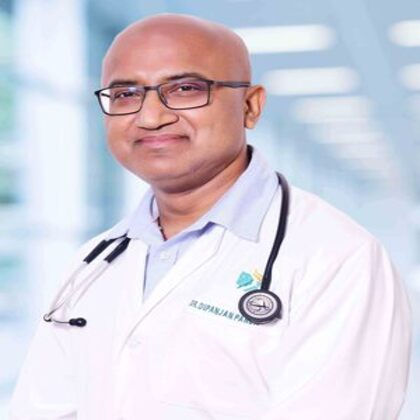
Dr. Dipanjan Panda
Medical Oncologist
10 Years • MBBS, MD, DM
12 KM • Noida
Apollo Hospitals Sector 26, Noida
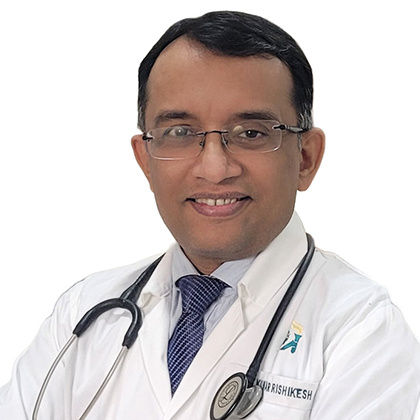
Dr. Kumar Rishikesh
Medical Oncologist
15 Years • MBBS, MD, DNB (Medical Oncology), Fellow Medical Oncology & Hematology (Princess Margaret Cancer Centre, University of Toronto)
10 KM • Delhi
Apollo Hospitals Indraprastha, Delhi
Book Appointment for Medical Oncologist in Delhi
Booking an appointment with a top medical oncologist in Delhi is now easier than ever with Apollo 24|7. Our user-friendly online platform and dedicated helpline ensure that you can quickly schedule a consultation with the best medical oncologists in Delhi NCR at a time and place convenient for you. With access to trusted hospitals and clinics across the city, Apollo 24|7 offers you the flexibility to choose from a wide range of experienced cancer specialists. Don't wait any longer; book your appointment with a leading Medical Oncologist in Delhi today and take the first step towards better health and peace of mind.
Who is a Medical Oncologist?
An Medical Oncologist is a medical doctor who specialises in the diagnosis, treatment, and management of cancer. After completing their MBBS degree, they pursue postgraduate training in internal medicine or surgery, followed by a specialised doctorate in medical oncology. Medical Oncologists are experts in various types of cancer, including solid tumours and haematological malignancies. They play a crucial role in diagnosing cancer through various tests, developing personalised treatment plans, and providing follow-up care to improve patients' quality of life. Medical Oncologists also focus on preventive care, offering guidance on cancer screening and lifestyle modifications to reduce cancer risk.
What Do Medical Oncologists Do?
The best Medical Oncologists in Delhi offer a comprehensive range of services to diagnose, treat, and manage various types of cancer. As highly skilled cancer specialists, the top Medical Oncologists in Delhi utilise cutting-edge technologies and evidence-based approaches to provide the highest quality of care to their patients. Some of the key responsibilities of Medical Oncologists in Delhi include:
Conducting diagnostic tests such as biopsies, imaging studies (e.g., CT scans, MRIs, PET scans), and blood tests to detect and stage cancer
Performing procedures like bone marrow aspiration and lumbar puncture for diagnosis and treatment
Administering chemotherapy, targeted therapy, and immunotherapy to treat various types of cancer
Collaborating with radiation Medical Oncologists and surgical Medical Oncologists to develop comprehensive treatment plans
Why Visit a Medical Oncologist?
Consulting with the best medical oncologists in Delhi is crucial for the early detection, effective treatment, and long-term management of cancer. Here are some key reasons why you should visit an Medical Oncologist:
Unusual symptoms: If you experience persistent symptoms such as unexplained weight loss, chronic fatigue, unexplained bleeding, or a lump or swelling, it's essential to consult an Medical Oncologist for evaluation.
Abnormal screening results: If your routine cancer screening tests (e.g., mammogram, Pap smear, colonoscopy) show abnormal findings, an Medical Oncologist can perform further diagnostic tests and develop an appropriate treatment plan.
Family history of cancer: If you have a strong family history of cancer, an Medical Oncologist can assess your risk, recommend genetic testing if necessary, and provide guidance on preventive measures.
Post-treatment follow-up: After completing cancer treatment, regular follow-up visits with an Medical Oncologist are essential to monitor for recurrence, manage long-term side effects, and ensure the best possible outcomes.
Palliative care: For patients with advanced or terminal cancer, Medical Oncologists provide palliative care to alleviate symptoms, improve quality of life, and offer emotional support to both patients and their families.
Early detection and timely intervention are key to successful cancer treatment. By visiting the top Medical Oncologists in Delhi, you can benefit from their expertise in diagnosing cancer at its earliest stages, accessing the most advanced treatment options, and receiving personalised care that addresses your unique needs and concerns.
How Often Should You See a Medical Oncologist?
Visiting the best medical oncologists in Delhi is crucial for cancer patients to receive the proper care and treatment. The frequency of these visits depends on various factors, such as the type and stage of cancer and the patient's overall health and response to treatment. Here are some general guidelines for how often different types of patients should see an Medical Oncologist:
High-risk patients: Individuals with aggressive or advanced cancers may need to visit their Medical Oncologist every 1-4 weeks during active treatment, depending on the therapy and response. After completing treatment, follow-up visits may be scheduled every 3-4 months for the first 2-3 years, then once or twice a year.
Low-risk patients: Those eligible for active surveillance may have fewer visits. For example, prostate cancer patients under active surveillance may undergo PSA testing every 3-6 months, a digital rectal exam annually, and a prostate biopsy every 2-5 years.
Patients with a family history of cancer: Such patients may require regular screenings and genetic counselling, with the frequency determined by their individual risk factors and specific screening recommendations.
Periodic evaluations: Evaluations are essential for patients who have completed cancer treatment. These typically include physical exams, blood tests, and other necessary tests tailored to the patient's cancer type and treatment history, aiming to monitor for recurrence or late effects of treatment.
What Diseases or Conditions Do Medical Oncologists Treat?
The best medical oncologists doctor in Delhi and throughout Delhi NCR treat a wide range of diseases and conditions related to cancer. These highly skilled professionals are trained to diagnose, treat, and manage various types of cancer, ensuring that patients receive the most appropriate and effective care possible. Some of the most common conditions that Medical Oncologists in Delhi treat include:
Breast cancer
Lung cancer
Colorectal cancer
Prostate cancer
Skin cancers (melanoma, basal cell carcinoma, squamous cell carcinoma)
Leukaemia
Lymphoma
Multiple myeloma
Brain and spinal cord tumours
Gynaecologic cancers (ovarian, cervical, uterine, and vaginal)
Head and neck cancers
Gastrointestinal cancers (oesophagus, stomach, pancreas, and liver)
In addition to treating cancer, the best medical oncologists doctor in Delhi also manages cancer-related symptoms and complications, such as pain, nausea, fatigue, anaemia, neutropenia, and thrombocytopenia. They may also address precancerous conditions like dysplasia or carcinoma in situ.
What are the Procedures Performed by a Medical Oncologist?
The top Medical Oncologists in Delhi perform a variety of diagnostic and treatment procedures to manage cancer effectively. These procedures are crucial in identifying the type and stage of cancer, as well as determining the most appropriate course of treatment for each individual patient. Some of the common procedures performed by the best Medical Oncologists doctor in Delhi include:
Biopsies: Removing a sample of tissue or cells to examine for cancer cells.
Imaging tests: CT scans, MRI scans, PET scans, and X-rays to visualise tumours and assess their size and location.
Blood tests: Checking for tumour markers, complete blood counts, and other indicators of cancer or its impact on the body.
Genetic testing: Identifying genetic mutations that may increase the risk of certain cancers or influence treatment options.
Chemotherapy: Administering medications to kill cancer cells, either intravenously or orally.
Radiation therapy: Using high-energy rays to kill cancer cells, which can be external beam radiation therapy or internal radiation therapy (brachytherapy).
Surgery: Removing tumours or affected tissues surgically can be curative or palliative.
Targeted therapy: Using medications that target specific molecules involved in cancer cell growth and survival.
Immunotherapy: Stimulating the immune system to recognise and attack cancer cells.
Hormone therapy: Blocking hormones that fuel cancer growth in hormone-sensitive cancers, such as some breast and prostate cancers.
Pain management: Interventions to control pain, including medications, nerve blocks, and other therapies.
Symptom management: Addressing symptoms such as nausea, fatigue, and shortness of breath.
The best Medical Oncologist in Delhi NCR will work closely with you to determine which procedures are necessary for your specific condition and will guide you through the process with compassion and expertise.
How Can I Find the Best Medical Oncologist in Delhi Near Me?
Finding the best Medical Oncologist in Delhi is now easier with Apollo 24|7. To search for a reputable Medical Oncologist, check their credentials, including medical degrees, specialised training, and years of experience. Read patient reviews to gauge their communication skills and treatment effectiveness. Look for affiliations with top hospitals like Apollo, Max Super Speciality, and Rajiv Gandhi Cancer Institute. Consider the Medical Oncologist's proximity to your location for convenient follow-up appointments. Ensure they have access to advanced diagnostic and treatment technologies. Finally, determine if the Medical Oncologist specialises in the type of cancer you are dealing with, as some focus on specific areas like breast or lung cancer.
Oncology vs. Radiology: What's the Difference?
Can Medical Oncologists Perform Surgical Operations?
Medical Oncologists who are not surgical Medical Oncologists do not perform surgical operations. Their role focuses on diagnosing and managing cancer through non-surgical methods like chemotherapy and radiation therapy. Medical and radiation Medical Oncologists work closely with surgical Medical Oncologists, who are trained surgeons specialising in the surgical aspects of cancer treatment. While Medical Oncologists are essential in developing comprehensive cancer treatment plans, they do not perform the surgical procedures themselves. Surgical Medical Oncologists, on the other hand, have advanced training in the surgical management of cancer and work in conjunction with medical and radiation Medical Oncologists to provide complete care.
What Does a Visit to a Medical Oncologist Cost in Delhi?
The cost of visiting a Medical Oncologist in Delhi can vary depending on factors such as the type of consultation (first-time or follow-up), tests, and diagnostic procedures required. On average, a first-time consultation with a top Medical Oncologist in Delhi can range from ₹1,000 to ₹3,000. Follow-up consultations are generally less expensive, ranging from ₹500 to ₹1,500. Basic tests like ECG and ECHO can cost between ₹500 to ₹2,000. However, more advanced diagnostic procedures such as biopsies, CT scans, or MRIs can significantly increase the overall cost. It's essential to consider these factors when budgeting for cancer treatment in Delhi.
Medical Oncologists in top localities of delhi
- •Best Medical Oncologists in Nirankari Colony, Delhi
- •Best Medical Oncologists in H.S.Sangh, Delhi
- •Best Medical Oncologists in Model Town III, Delhi
- •Best Medical Oncologists in Dr.Mukerjee Nagar, Delhi
- •Best Medical Oncologists in G.T.B.Nagar, Delhi
- •Best Medical Oncologists in Gujranwala Colony, Delhi
- •Best Medical Oncologists in Model Town II, Delhi
- •Best Medical Oncologists in Bhalaswa, Delhi
- •Best Medical Oncologists in Adrash Nagar, Delhi
- •Best Medical Oncologists in Jahangir Puri A Block, Delhi
- •Best Medical Oncologists in Jahangir Puri D Block, Delhi
- •Best Medical Oncologists in Jahangir Puri H Block, Delhi
- •Best Medical Oncologists in N.S.Mandi, Delhi
- •Best Medical Oncologists in Saraswati Vihar, Delhi
- •Best Medical Oncologists in Rani Bagh, Delhi
- •Best Medical Oncologists in Shakur Pur I Block, Delhi
- •Best Medical Oncologists in Shakurbasti Rs, Delhi
- •Best Medical Oncologists in Anandvas Shakurpur, Delhi
- •Best Medical Oncologists in Maurya Enclave, Delhi
- •Best Medical Oncologists in Sri Nagar Colony, Delhi
Related Treatments in Delhi
- •Treatment for Acute Lymphoblastic Leukemia in Delhi
- •Treatment for Actinic keratosis in Delhi
- •Treatment for Bad Breath Halitosis Treatment in Delhi
- •Treatment for Acute Diarrhea Treatment in Delhi
- •Treatment for Amyotrophic lateral sclerosis in Delhi
- •Treatment for Adolescent and Young adult Cancers in Delhi
- •Treatment for Bile Duct Cancer Cholangiocarcinoma in Delhi
- •Treatment for Bladder Cancer in Delhi
- •Treatment for Acute lymphocytic leukemia in Delhi
- •Treatment for Acute myelogenous leukemia in Delhi
- •Treatment for Acute Myeloid Leukemia in Delhi
- •Treatment for Adnexal tumors in Delhi
- •Treatment for Adrenal cancer in Delhi
- •Treatment for Ampullary cancer in Delhi
- •Treatment for Anal Cancer in Delhi
- •Treatment for Ankle Pain in Delhi
- •Treatment for Astigmatism in Delhi
- •Treatment for Bleeding During Pregnancy in Delhi
- •Treatment for Blood Cancer in Delhi
- •Treatment for Bone Cancer in Delhi
FAQs
What is a medical oncologist?
An oncologist is a doctor who specialises in diagnosing and treating cancer using chemotherapy, hormone therapy, and targeted therapy. An oncology surgeon, on the other hand, is a surgeon who specialises in performing surgical procedures to remove tumours and cancerous tissues from the body.
What is the difference between oncologists and medical oncologists?
While an oncologist is any doctor who specialises in cancer care, a medical oncologist specifically focuses on treating cancer using non-surgical methods like chemotherapy and immunotherapy. Oncologists, in general, may include specialists in radiation or surgical oncology as well.
What is the difference between medical oncologists and surgical oncologists?
Medical oncologists treat cancer using medications and other non-surgical approaches, while surgical oncologists specialise in removing tumours or affected tissues through surgery. Surgical oncologists are typically involved in the initial diagnosis and treatment of cancer, while medical oncologists provide ongoing treatment and management.
Why would I be referred to a medical oncologist?
You may be referred to a medical oncologist if you need cancer treatment involving chemotherapy, immunotherapy, or hormone therapy. They are typically consulted for non-surgical cancer management and ongoing monitoring after initial treatments.
Can a medical oncologist perform surgery?
No, medical oncologists do not perform surgery. They focus on treating cancer through medications and other non-surgical therapies, often working alongside surgical oncologists when surgery is required.
What is the difference between a radiation oncologist and a medical oncologist?
A radiation oncologist uses radiation therapy to treat cancer, while a medical oncologist focuses on using systemic therapies like chemotherapy, immunotherapy, or targeted drugs. Both specialists treat cancer but use different approaches to manage the disease.
What is the treatment of medical oncology?
Medical oncology treatments include chemotherapy, immunotherapy, targeted therapy, and hormonal therapy. These therapies are used to treat cancer by targeting cancer cells or boosting the body's immune system to fight the disease.
What is the most common disease treated by medical oncologists?
Oncologists treat various types of cancer, with some of the most common being breast cancer, lung cancer, colorectal cancer, prostate cancer, and blood cancers like leukaemia and lymphoma. The most common condition treated may vary depending on factors such as age, gender, and geographic location.